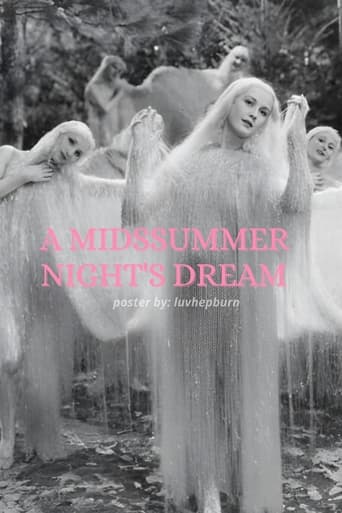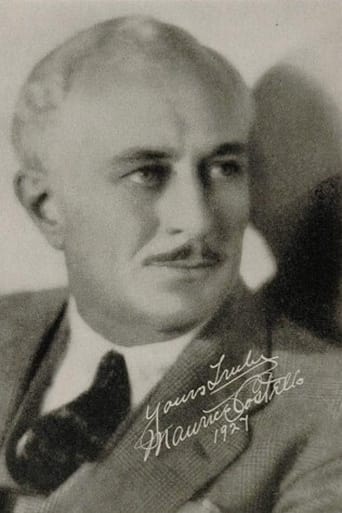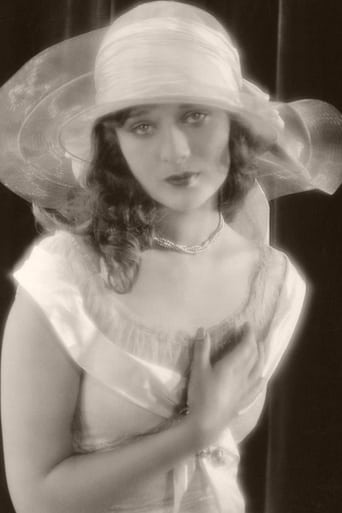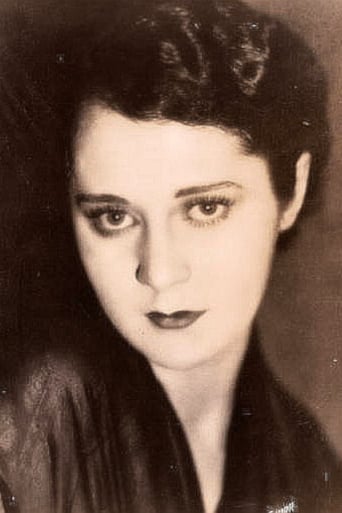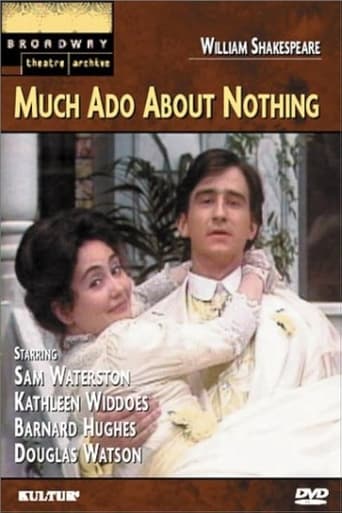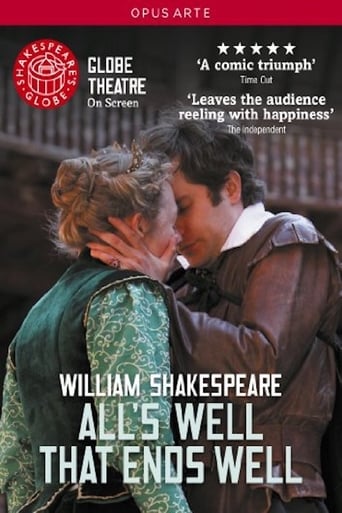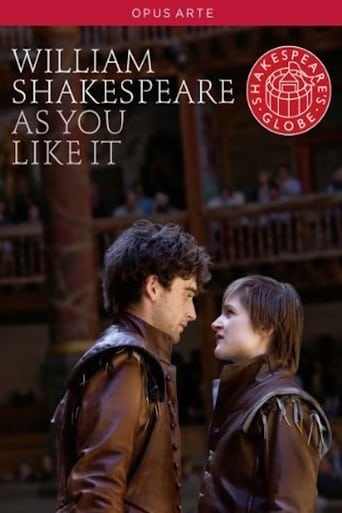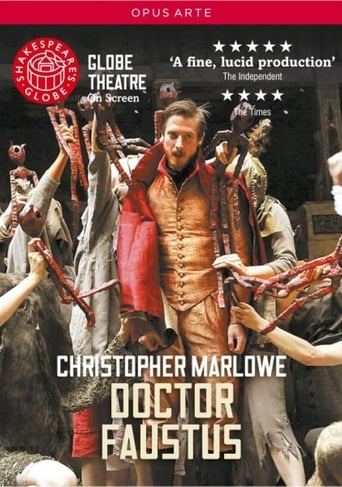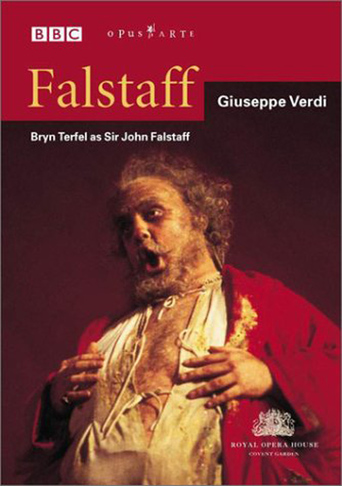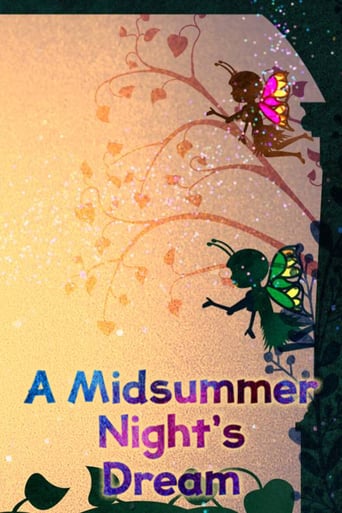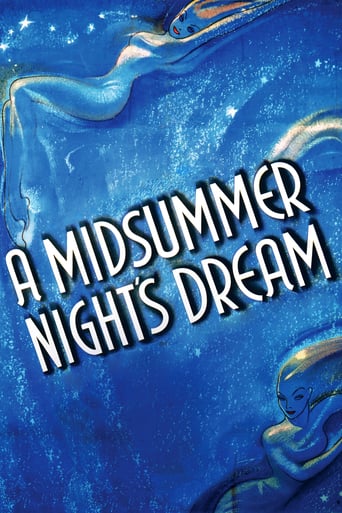A Midsummer Night's Dream (1909)
An early film adaptation of the Beard's comic fantasy-- and perhaps the first screen adaptation of a Shakespeare play.
Watch Trailer
Free Trial Channels
Cast


Similar titles
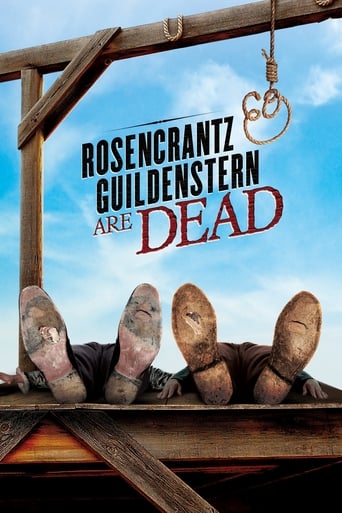
Reviews
Best movie ever!
Am i the only one who thinks........Average?
The film was still a fun one that will make you laugh and have you leaving the theater feeling like you just stole something valuable and got away with it.
It is interesting even when nothing much happens, which is for most of its 3-hour running time. Read full review
Silent films are a strange object of consideration for the contemporary film critic. Some of them are classics, pieces of cinematic art which belong among the best films of all time and which must be seen by any serious film buff. Others are downright dreadful, only valuable as historical objects. It is in-between these two categories where A Midsummer Night's Dream's cinematic debut belongs.Stage veteran Charles Kent, along with co-director J. Stuart Blackton, does an adequate job at bringing this legendary piece of dramatic literature to the silver screen for the first time. The theatre man brought a few of the bard's plays to the silver screen for the first time, with A Midsummer Night's Dream being his second after Anthony and Cleopatra a year earlier. Being his second adaptation, it doesn't do much in the way of directorial innovation. However, the editing shows signs of some innovations that were taking place at the time. An early example of special effects was used to transform Bottom's head into an ass, while the fairies are made to appear and disappear using the same splicing effect. For this editing innovation and foresight alone, A Midsummer Night's Dream's cinematic debut is worthwhile.
This adaptation of Shakespeare's play was one of Vitagraph's prestige productions from 1909. Like all adaptations of the Bard, it's pretty confusing if you don't know the play – and possibly not too clear even if you do. Vitagraph attempts to keep the viewer up to speed with what's taking place on screen with lengthy titles which don't really help at all. The film makes good use of real locations – mostly a forest near to the studio, and there is also some reasonably impressive (for the time) trick photography. The ass's head however is something of a disappointment it has to be said – I've seen better at school plays. The last third of the film has been lost apparently, but I honestly don't think that will affect your viewing pleasure too much.
Midsummer Night's Dream, A (1909) ** 1/2 (out of 4) Yep, more Shakespeare early style. The actual "story" never really comes across here and the title cards just make things even more confusing but the interesting thing are all the technical stuff. Every shot of the film takes place outdoors and all the locations are very nice. The camera angels are also all set up to perfectly capture the mood of the film.Tempest, The (1908) *** (out of 4) Another Shakespeare adaptation works perfectly well and delivers a very magical feel. Part of this is due to the dreamlike camera work but the special effects are also quite good for their time.King John (1899) *** (out of 4) 've been told this was the first Shakespeare adaptation and if so it isn't too bad for what it is. Running just over three minutes this here takes the final pages of the play as King John dies.
I'm becoming convinced that it is extremely difficult to bring Shakespeare to film without doing some major translations, at least using modern notions. There's just too much invested in the spoken language itself from whence all the stuff flows that is normally associated with the cinematic.I've been looking at several silent treatments. Naturally enough, they fall flat. But this one doesn't because it emphasizes the play of the "mechanicals." The abstraction of that play on film, the jumping and gesticulating is along the same lines as ALL the acting of that day, but double.If you were going to try a film, the best plot device is the play within the play (of any of his plays that have this). And the best abstraction strategy is to just take his existing exaggeration and exaggerate it.It is all a matter of what you are tricked into falling in love with.Ted's Evaluation -- 3 of 3: Worth watching.

